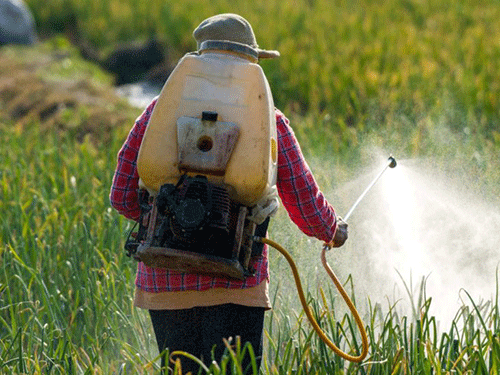Hanks Saisai
Chemical remedies such as herbicides, fungicides and pesticides are increasingly being used in most crop production operations as they play a vital role in ensuring a successful crop production season. Herbicides are chemical remedies that are traditionally sprayed on weeds to reduce their competition effect with desired crops.
Fungicides are conventionally chemical remedies used to control fungal diseases in crops such as tomatoes and potatoes. On the other hand, pesticides are remedies that are used to control micro-organisms such as ants, insects and worms that may cause harm to a farmer‘s crops, by chewing, sucking or stinging on crops.
There are, however, several considerations that farmers must bear in mind before applying these remedies. The first consideration a crop farmer must bear in mind before buying any chemical remedy such as a pesticide, herbicide or fungicide is to understand the problem that needs to be addressed.
For example, a farmer must not buy a herbicide such as Glyphosate to address an armyworm pest outbreak. Moreover, it is crucial for the farmer to know the active ingredients in the chemical remedy and the target group of pests, fungi and weeds it eradicates.
Additionally, the farmer is advised to check whether the remedy is selective or non-selective. This will ensure that the farmer understands that selective remedies only target certain problematic micro-organisms and spare beneficial organisms such as Ladybird bugs and Praying Mantis that are usually natural enemies of pests such as aphids and ants or insects as they prey on them.
The second consideration is to check the expiry date of the specific remedy to ensure its effectiveness in addressing the identified problem. Additionally, the farmer must follow application instructions adhering to the correct dosage and mixing requirements to give the chemical remedy a chance to correctly carry out its function.
Thirdly, the farmer needs to check if the chemical remedy is corrosive or non-corrosive, this will assist the farmer to avoid injuries such as skin burn when handling the remedies. Most remedies must be handled with protective gear that prevents corrosive injuries that may result from the remedy›s reaction to the skin.
Finally, the last consideration when buying and using chemical remedies is to have an application program that rotates the products that one uses to address challenges such as weeds, fungal infections or pests. Rotating chemical remedies ensures that the targeted weeds, fungi and pests do not develop resistance against the remedy used. Overall, crop farmers should understand the mentioned considerations to successfully correct issues that may limit yield potential.
Lastly, a farmer must understand that after using the chemical remedies there should be a withdrawal period before one can harvest and consume produce after spraying any remedy.
Usually, the withdrawal period is always indicated on the instructions for using the leaflet. If one consumes produce that were sprayed using chemical remedies it may result in death.
* Hanks Saisai is Agribank Technical Advisor: Crops & Poultry



